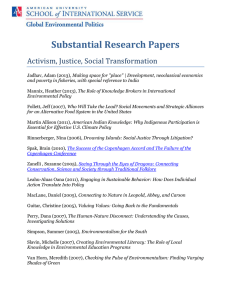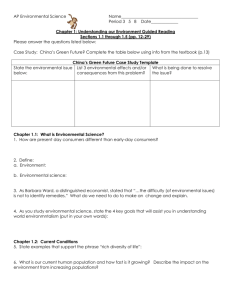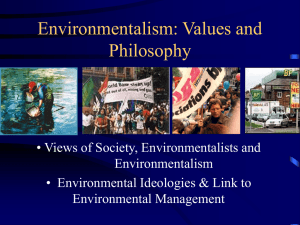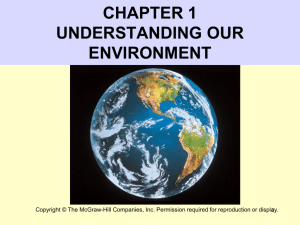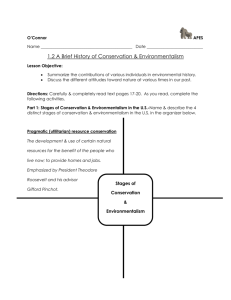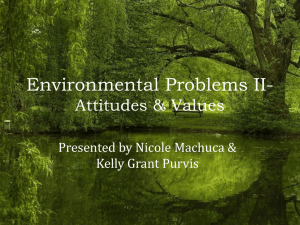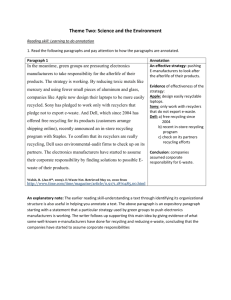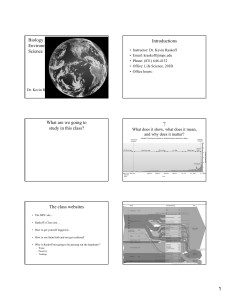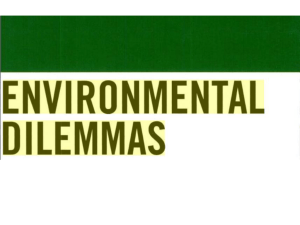Environmental Values in American Culture
advertisement
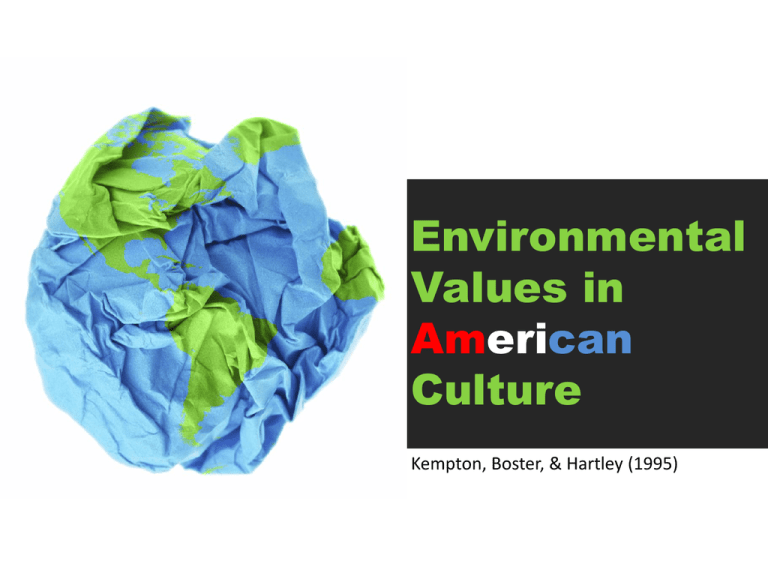
Environmental Values in American Culture Kempton, Boster, & Hartley (1995) The Gist • Environmentalism based on beliefs, values, and cultural models – Organization of beliefs and values shared within a culture or social group • In-depth interviews and surveys with several sectors of the public from extremes on both ends of environmentalism with many in between • Environmental values intertwined with core American values Theory Overview • Two sets of cultural models – Cultural models of nature – Cultural models of weather and atmosphere • Three sources of environmental values – Religion/Spiritual – Anthropocentric – Biocentric Cultural Models of Nature • Nature is a limited resource – Essentially a health concern • Nature is balanced, interdependent, and unpredictable – Unpredictable chain rxn’s – Humans shouldn’t interfere (nonintervention model) • Models of society and nature – Wealth and consumption are paramount values at odds with environmental protection – People are separated from nature – Idealize environmentalism of primitive people Cultural Models of Weather & Atmosphere • Global warming is understood using prior cultural models of: – Pollution – Ozone depletion • Assimilate green house effect into a model of ozone depletion – Photosynthesis – Seasonal temperature variation • Weather is affected by human activities; we should not tamper Religious & Spiritual Values • “It seems that divine creation is the closest concept American culture provides to express the sacredness of nature. Regardless of whether one actually believes in biblical Creation, it is the best vehicle we have to express this value” (p. 92). • Religion reinforces and justifies environmental protection Anthropocentric Values • Concern for one’s descendents or future generations (not just own) loom large in thinking about environmental issues – Tied to parental responsibility • Utilitarian • Aesthetic Biocentric Values • Humans are a part of nature • Rights of a species to continue – Species preservation > Ecosystems preservation • Intrinsic rights of nature Kempton, Boster, & Hartley’s Cultural Models and Environmental Values Cultural Models Environmental Values ENVIRONMENTALISM Nature is a highly interdependent system in a balanced state, vulnerable to unpredictable “chain reactions” triggered by human disturbances Obligations to our decedents Humanity’s utilitarian need for nature Global warming is understood using prior cultural models of pollution, the ozone hole, and photosynthesis. Cultural models are not wrong, but are inappropriately applied to global warming, leading to incorrect inferences. Weather is considered susceptible to human influence and a majority notice warmer winters Spiritual/religious value of nature Rights of nature in and of itself Application of Theory • McMillan et al. (2004): Impact of a universitylevel environmental studies class on students’ values • Do students’ environmental values change after taking course? – 17 in-depth interviews; 44 completed pretest/posttest surveys (30% response rate) • Intrinsic rights of nature
